
Ed. A K Sharma et al Published by Ramakrishna Mission Institute of Culture, Kolkata
2013, the 150th Birth anniversary of Swami Vivekananda, coincided with the centenary year of the Indian Science Congress Association. To commemorate these occasions, the National Academy of Sciences, India, and the Ramakrishna Mission Institute of Culture brought out the History of Science in India in eight volumes tracing the scientific temper of Indians from pre-historic Vedic times. Written by different sets of authors, all volumes trace this history in a lively manner without losing objectivity, accuracy, and clarity.
The Introductory volume brings out in 237 pages, the zeal, scientific temper and vision of 28 eminent personalities including Swami Vivekananda, Ramanujam, J.C.Bose, C.V.Raman, Birbal Sahni, Bhatnagar, and Mahendral Lal Sarkar.
Volume I, Part I, deals with Physics, Mathematics and Statistics journeying through Aryabhata, finding the values of Zero, Pi, studying the works of S. N. Bose and C. V. Raman of the ‘Bengal School of Physics’, the survey of Mehalanobis and C. R. Rao, and the influence of Sankhya philosophy on Statistics, in 286 pages.
Volume I, Part II, on Astronomy studies the Indian sky of 6000 years ago, the Indian calendar with eclipses calculated by the Rishis of yore, as well as modern sky watchers like Dr Pappu, and Astrophysics institutions and planetoria, in 228 pages.
Volume II on Medicine and Pharmacology runs into 285 pages tracing the journey of Medicine in India from the Ethnomedicine of prehistoric tribals to Ayurveda, Siddha, Yoga, etc., up to Unani and modern Allopathy.
Denne historien er fra February 2022 -utgaven av The Vedanta Kesari.
Start din 7-dagers gratis prøveperiode på Magzter GOLD for å få tilgang til tusenvis av utvalgte premiumhistorier og 9000+ magasiner og aviser.
Allerede abonnent ? Logg på
Denne historien er fra February 2022 -utgaven av The Vedanta Kesari.
Start din 7-dagers gratis prøveperiode på Magzter GOLD for å få tilgang til tusenvis av utvalgte premiumhistorier og 9000+ magasiner og aviser.
Allerede abonnent? Logg på
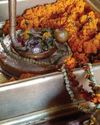
Panchakroshi Parikrama of Varanasi
At the snow-capped Kailas, the Divine Lord Shiva was seated with Mother Parvati.
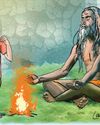
Gadai and the Monks
A fictional narrative based on incidents from the childhood of Sri Ramakrishna.
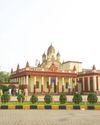
Chintayo momo maanosho Hori...
Sri Ramakrishna loved songs. There probably was no normal day when he did not sing some songs.
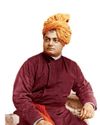
The Vedanta Vaccine
The world is still struggling under the impact of the pandemic due to Covid-19 for the last three years.
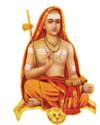
Chandrakirti's Chariot: Self in Madhyamaka Buddhism and Advaita Vedanta
The goal in Advaita Vedanta is the cessation of suffering and the attainment of true fulfillment. Suffering, according to this school, is due to ignorance of the true nature of the self and consequent erroneous identification with the body-mind.
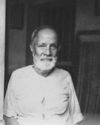
Reminiscences of Sargachhi
Question: यद्यदाचरतत श्रेष्ठसतत्तदरेवरेतरो जनिः। ‘Whatever a superior person does, others do the same thing!’ (Gita 3:21) – What does this statement mean?
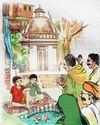
THE AUTUMN FESTIVAL
A fictional narrative based on incidents from the childhood of Sri Ramakrishna.
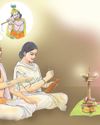
Bards of Guruvayur: Vilwamangalam II
Saints of India
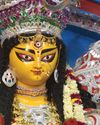
In the Universal Mother’s Divine Playground
Swami Vivekananda never taught the worship of Mother Kali. In a letter to Mary Hale he writes, “Kali worship is not a necessary step in any religion.
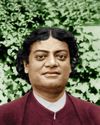
Swami Vivekananda: A Sportsman Par Excellence
In various books and articles, Swami Vivekananda has been called a spiritual leader, a prophet, a patriot, a social reformer, a philosopher, a yogi, a writer, an orator, an educationist, a musician, and so on.